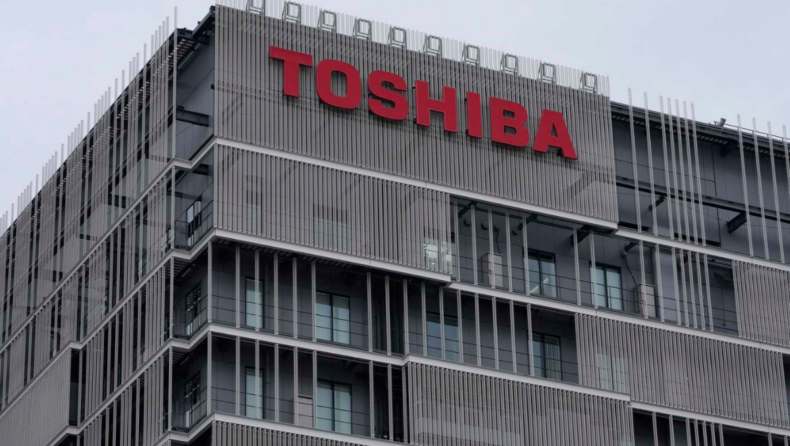The European Commission in 2015 fined five companies 116 million euros ($ 120.5 million), and a major fine of 41.3 million euros to Toshiba Samsung Storage Technology, a joint venture of Toshiba and Samsung Electronics.
Toshiba, Sony and Samsung Electronics on Thursday lost their court battle against the EU cartel fine levied seven years ago for participating in the acquisition of optical disc drive tenders.
The European Commission in 2015 fined five companies 116 million euros ($ 120.5 million), and a major fine of 41.3 million euros to Toshiba Samsung Storage Technology, a joint venture between Toshiba and Samsung Electronics.
Hitachi-LG Data Storage was fined 37 million euros. Other companies owned by Sony, Sony Optiarc which is a joint venture between Sony and NEC, and Quanta Storage. Philips avoided fines as he informed the cart about EU competition monitors.
The commission said the merger affected the optical disk drive laptops and desktops manufactured by Dell and Hewlett Packard.
The General Court in 2019 agreed with the party’s acquisition of the party and overturned the corporate challenge.
Sony, Sony Optiarc, Toshiba Samsung Storage Technology and Quanta Storage later filed a complaint with the European Court of Justice (CJEU), the highest court in Europe.
The EU-based Luxembourg Court of Justice (CJEU), the highest court in Europe, upheld EU sanctions.
“It does not depend on the company’s stakeholders, nor any public policy reason, to justify the (CJEU) using its unlimited power to reduce that amount,” the CJEU said in fines. The judges, however, overturned part of the EU decision to force EU competition.
“The Commission has been failed to fulfill its obligation to explain finding in addition to their involvement in the same and ongoing violations, the promises involved also contributed to a number of different offenses.” they have stated.
Court of Justice of the European Union
The European Court of Justice (CJEU) is the judiciary of the European Union (EU). The EU, located in the Kirchberg suburb of Luxembourg City, Luxembourg, has two separate courts: the Court of Justice and the Supreme Court.
The CJEU is made up of two major courts
- The Court of Justice, also known as the European Court of Justice (ECJ), which hears appeals from national courts for initial decisions, dismissals and appeals. It consists of one judge from each EU member state, and 11 attorneys general.
- General Court, which hears applications for dismissal of individuals, companies and, in particular, national government (with a focus on competition law, government assistance, trade, agriculture and trademarks). As of 2020 the court has 54 judges, though only 49 seats are currently filled.
What does the CJEU do
- interpreting the law (initial decisions) – national courts of EU countries are required to ensure that EU law is applied correctly, but the courts of different countries may interpret it differently. If the national court has doubts about the interpretation or legitimacy of EU law, it can ask the Court to clarify. The same method can be used to determine whether national law or practice complies with EU law.
- law enforcement (criminal procedures) – this type of case is prosecuted by the national government for failing to comply with EU law. It can be initiated by the European Commission or another EU country. If the state is found to be at fault, it must be remedied at once, or at risk of a second trial, which could result in a fine.
- to dissolve EU legal acts (acts of liquidation) – if an EU act is believed to violate EU treaties or fundamental rights, the Court may be required to set it aside – by the EU government, the EU Council, the European Commission or (in some cases) Parliament European. Individuals can also ask the Court to overturn an EU action that directly affects them.
- ensuring that the EU acts (actions of failure) – Parliament, the Council and the Commission must make certain decisions under certain circumstances. If they do not, EU governments, other EU institutions or (under certain circumstances) individuals or companies can appeal to the Court.
- punishing EU institutions (acts of vandalism) – any person or company whose interests have been harmed as a result of an act or omission of the EU or its employees can be prosecuted by the Court.
Read More-
- Kuzey, founder Æ, plans to initiate technological revolution to support human future
- Billions on the move: India may lose 8,000 HNWI by 2022, among the top 10 countries to migrate by million
- Zara enters more than 61% growth in India revenue to Rs 1,815 crore
- Commodities influenced by the Fed’s interest rate decision, comments, and economic projections
- Coal India launches its first bid for the import coal for the power sector













